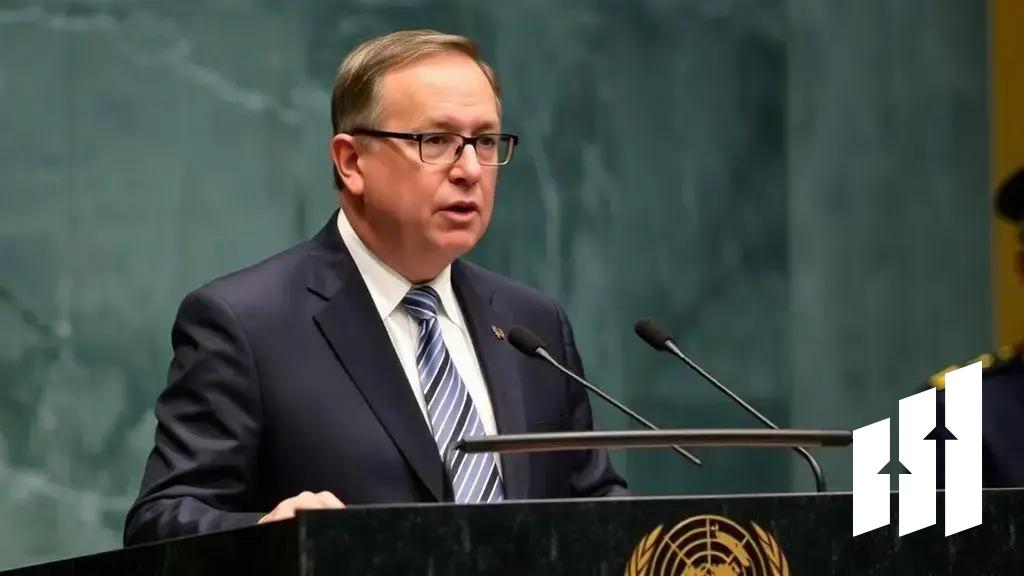The current status of North Korea’s nuclear arsenal poses significant implications for global security. Countries are responding through a mix of sanctions, military readiness, and diplomatic engagement to address these threats. Dialogue with North Korea is crucial for reducing tensions, while global collaboration aims to ensure safety and promote stability in the region. As nations work together, effective strategies focused on trust and cooperation are essential for achieving lasting peace.In a recent address, South Korea’s President Lee Jae Myung emphasized the critical state of North Korea’s nuclear capabilities, stating that they possess sufficient nuclear weapons for regime survival. How does this impact the geopolitical landscape?
North Korea’s Nuclear Arsenal Status
North Korea’s nuclear arsenal is a hot topic today. Reports show that North Korea has a variety of nuclear weapons. These weapons are a core part of their military strategy. They see nuclear arms as essential for their survival. Their leaders believe that having these weapons protects them from threats.
Types of Nuclear Weapons
North Korea has developed several types of nuclear weapons. They have both bombs and warheads that can be placed on missiles. Some of these missiles can reach faraway countries. This capability raises concerns among neighbors and other nations.
Number of Weapons
Estimates suggest that North Korea might have around 40 to 50 nuclear warheads. This number is not small. It is significant compared to some other countries. However, the exact number is hard to confirm due to the secretive nature of their program.
The Development Timeline
North Korea’s nuclear program started back in the 1960s. Since then, they have made much progress. They conducted their first nuclear test in 2006. Since then, they have increased both the number and the sophistication of their weapons.
International Concerns
Many countries worry about North Korea’s nuclear capabilities. They fear an arms race in the region. Nations such as the U.S. and South Korea are particularly on alert. Diplomatic talks have happened to address these issues, but agreement has often been tough to achieve.
Implications for South Korean Security
The implications of North Korea’s nuclear capabilities for South Korean security are significant. South Korea must constantly assess its defense strategies. The threat of nuclear weapons affects decisions on military investments and alliances. Increased tensions can lead to heightened anxiety among the public.
Impact on Defense Spending
To counter North Korea’s threats, South Korea may boost its defense budget. This means more funds for military technology and personnel. Advanced systems, like missile defense, become a higher priority. This ensures quick responses in case of an attack.
Strengthening Alliances
South Korea relies heavily on its alliance with the United States. This partnership provides security and military support. Joint military exercises are common to demonstrate force. These actions reassure South Koreans of their security. They also send a message to North Korea.
Public Sentiment
The nuclear threat from North Korea shapes public opinion in South Korea. Many citizens are concerned about their safety and future. This fear can influence political policies and elections. Leaders must address these anxieties to maintain trust.
Diplomacy and Dialogue
Engaging in diplomatic talks is essential for stability. South Korea often seeks dialogue with the North. This can lead to reducing tensions and perhaps future agreements. Diplomacy faces challenges but remains a critical option.
The Role of Dialogue and Engagement
Dialogue and engagement are key in addressing North Korea’s nuclear threat. Open communication can help reduce misunderstandings. It allows both sides to express their concerns and needs clearly. Effective dialogue often leads to lower tensions and better relations.
Importance of Diplomacy
Diplomacy is crucial for improving safety in the region. South Korea often seeks talks not just with North Korea but also with international allies. These discussions create opportunities for peace and cooperation. The goal is to find solutions that benefit everyone.
Engagement Strategies
Engagement can take many forms. Cultural exchanges, sports events, and unified actions can build trust. When North and South Korea participate together, it shows a willingness to collaborate. These activities foster better relations and create bonds between people.
Challenges of Engagement
Despite the benefits, dialogue can be hard. North Korea has a history of breaking agreements. This makes South Korea and its allies cautious. Ensuring that talks lead to real progress is vital.
Future Prospects
Encouraging engagement may lead to gradual change. Continued dialogue can help break the cycle of tension. It might even create openings for agreements on nuclear weapons. Every step towards communication is a step toward peace.
Global Responses and Future Strategies
Global responses to North Korea’s nuclear ambitions require careful planning. Countries around the world are concerned about safety and stability. Many nations are joining forces to address these challenges together. This united approach aims to prevent nuclear conflict and promote peace.
International Sanctions
One common response is to impose sanctions. These sanctions limit North Korea’s resources. They aim to pressure the government to halt its nuclear program. Many countries support these measures, believing they can lead to change.
Diplomatic Efforts
Diplomacy plays a big role in the global response. Nations hold talks to discuss disarmament and reduce tensions. Engaging North Korea in dialogue can help find peaceful solutions. It’s about creating a stable environment for everyone.
Military Preparedness
While diplomacy is essential, military readiness is also important. Countries in the region, like South Korea and the U.S., must be prepared to defend themselves. This means having strong defense systems in place. They work together to ensure they can respond if necessary.
Future Strategies
Looking ahead, the focus should be on building trust. Countries can work to create agreements that foster cooperation. This can lead to more effective solutions for nuclear disarmament. Ongoing dialogue is crucial for making progress.
Conclusion
In conclusion, addressing North Korea’s nuclear capabilities is vital for peace and stability. The combined efforts of dialogue, engagement, and international responses are key to ensuring safety. By focusing on diplomacy and building strong alliances, countries can work together to minimize threats.
Global responses, such as sanctions and military preparedness, play a critical role. These strategies help to hold North Korea accountable while promoting cooperation for the future. Continued dialogue and trust-building measures are essential to achieving lasting solutions. Ultimately, a united approach is the best way to navigate these challenges and foster a secure environment for everyone.
FAQ – Frequently Asked Questions about North Korea’s Nuclear Threat and Global Responses
Why is North Korea’s nuclear arsenal a concern for global security?
North Korea’s nuclear weapons increase the risk of conflict and instability in the region, raising alarms for countries worldwide.
What measures are countries taking to respond to North Korea’s threats?
Countries are imposing sanctions, enhancing military readiness, and engaging in diplomatic talks to address the risks posed by North Korea.
How do sanctions affect North Korea?
Sanctions limit North Korea’s access to resources and funding, aiming to pressure the government to abandon its nuclear ambitions.
What role does diplomacy play in dealing with North Korea?
Diplomacy is crucial as it provides a platform for dialogue, helping to reduce tensions and explore peaceful solutions.
How can military preparedness help South Korea?
Military preparedness ensures South Korea can effectively defend itself against any potential threats from North Korea, maintaining regional stability.
What strategies can promote future cooperation with North Korea?
Building trust through continuous dialogue and engagement in cultural exchanges can help foster cooperation and reduce conflicts in the future.


 ECB’s Nagel Maintains Economic Outlook with December Options Open
ECB’s Nagel Maintains Economic Outlook with December Options Open  Gold Prices Drop Below $4,000 After Tax Reforms in China
Gold Prices Drop Below $4,000 After Tax Reforms in China  Australia Holds Key Interest Rate Steady Amid Uncertain Economic Outlook
Australia Holds Key Interest Rate Steady Amid Uncertain Economic Outlook  Bank of England Expected to Hold Rates Ahead of UK Budget Announcement
Bank of England Expected to Hold Rates Ahead of UK Budget Announcement  China’s Pharmaceutical Growth: A New Tension Point in US Relations
China’s Pharmaceutical Growth: A New Tension Point in US Relations  Italy’s Economic Outlook Improves Under Giorgia Meloni’s Leadership
Italy’s Economic Outlook Improves Under Giorgia Meloni’s Leadership